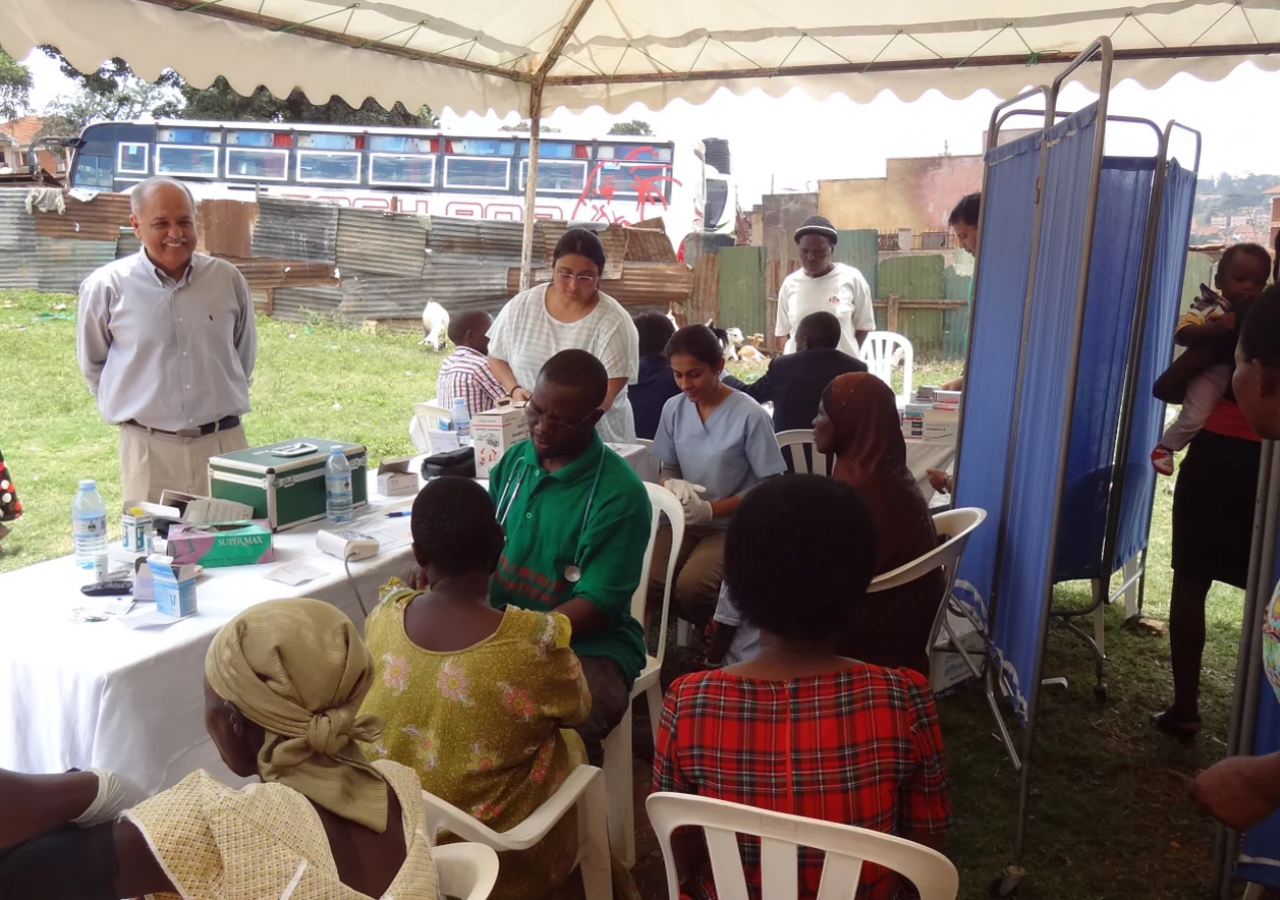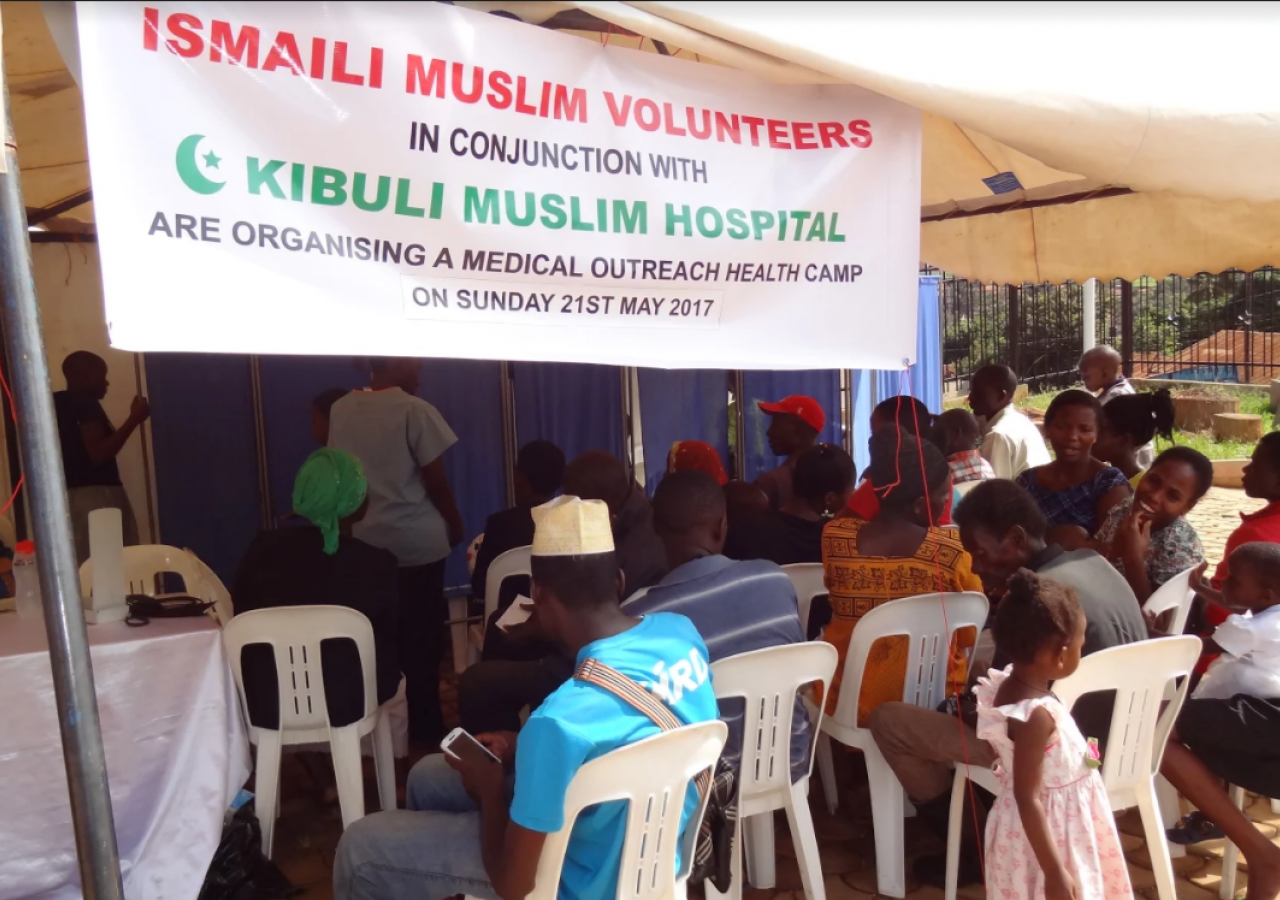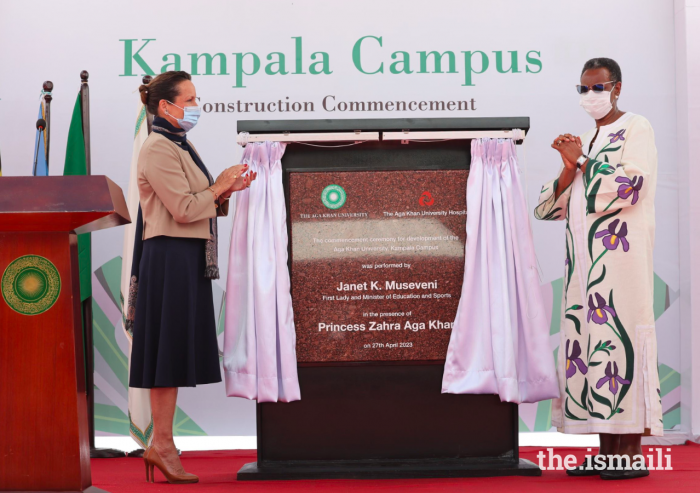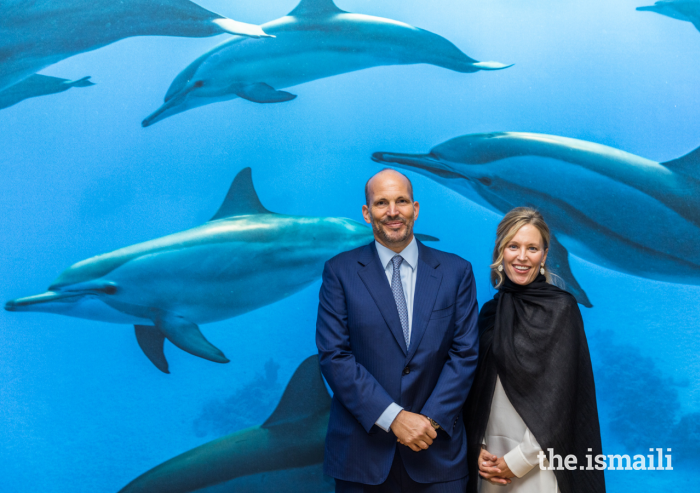Tell us about the Ismaili community in Uganda
We are from a culturally diverse community and live in over 25 countries. The global Ismailis represent a rich diversity of cultures, languages, and nationalities. Ismailis have lived in Uganda for a very considerable time and have positively contributed to the economy and the development of human resources as well as enhancing the quality of life of many Ugandans through their own volunteer ethic. We belong to a faith that encourages the use of intellect in all ways and is a faith that is based on finding a balance between the spiritual and the material.
His Highness Prince Karim Aga Khan became Imam of the Shia Imami Ismaili Muslims on 11th July, 1957 at the age of 20, succeeding his grandfather, Sir Sultan Mohamed Shah Aga Khan. He is the 49thhereditary Imam of the Shia Imami Ismaili Muslims and a direct descendant of the prophet Muhammad (peace be upon him). The role of the Ismaili Imam is a spiritual one; and he is also concerned with the quality of life and security of all global Ismailis. This is in keeping Islam’s message which guides man not only in his spiritual relationship with God but also with respect to his relationship with the material world. If you look at his 60-year Imamat, you will note a tremendous record of accomplishment.
What does the diamond Jubilee celebration mean to you?
This historic commemoration of His Highness the Aga Khan, as Imam of the Ismailis, began on 11th July 2017 and will conclude on 11th July 2018. Since acceding to the Imamat, Prince Karim Aga Khan has focused on efforts concerning the betterment of the Ismaili community, the wider Muslim community and the people amongst whom the Ismaili communities live. This occasion will be celebrated in the traditional manner of expressing Shukhrana( gratitude), happiness and a special honor to His Highness, for his tireless work for both Ismailis and the societies amongst whom we live.
How have the values of your faith benefitted Ugandans?
Ismailism is a faith that preaches tolerance, promotes pluralism, and believes in generosity towards the less fortunate. The community is founded upon values of volunteerism, and giving of one's service and self is viewed as an integral and positive part of daily life, and never a burden. Contributing to civil society is part and parcel of our faith. To cite couple of examples; a few years ago prolonged heavy rains resulted in serious flooding, water logging and landslides in eastern Uganda. Our community responded with interventions at the Bulecheke camp, which housed about 2500 people and our partners where UNICEF, WFP, and the Uganda red cross. Community leadership together with volunteers from Kampala and Mbale participated and relief items were also distributed. In October 2016 and more recently in May 2017, our volunteers in conjunction with Kibuli Muslim hospital hosted a very successful clinic to the local community. At both those clinics, around 300 people including elderly and young children, were tested and treated for diabetes and hypertension.
In what ways is the Ismaili community contributing to the social and the economic development of Uganda?
The community is engaged in various sectors of the economy. We also have some fine sports persons who contribute to sports in Uganda and one cricketer who plays at the national level.









